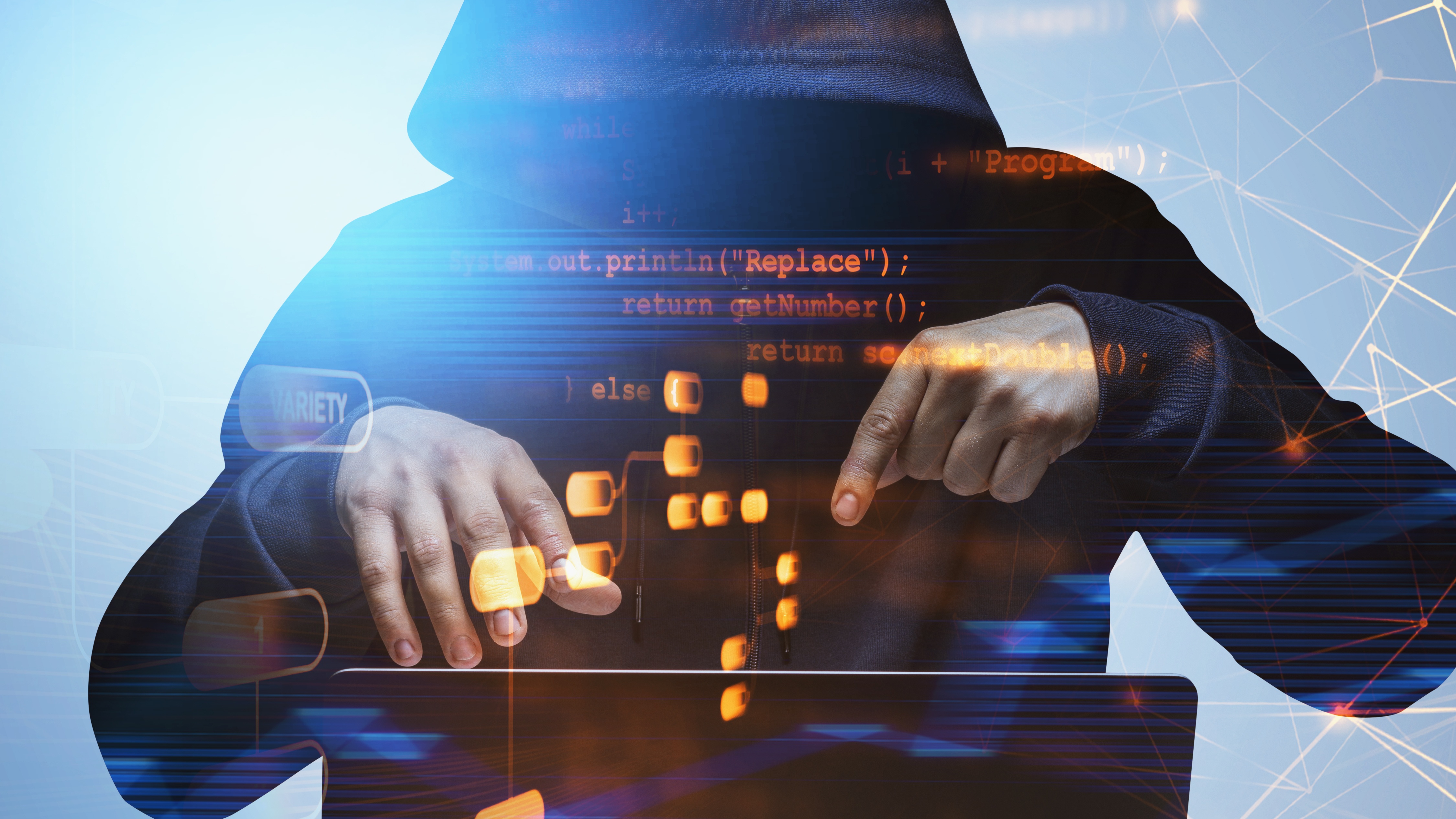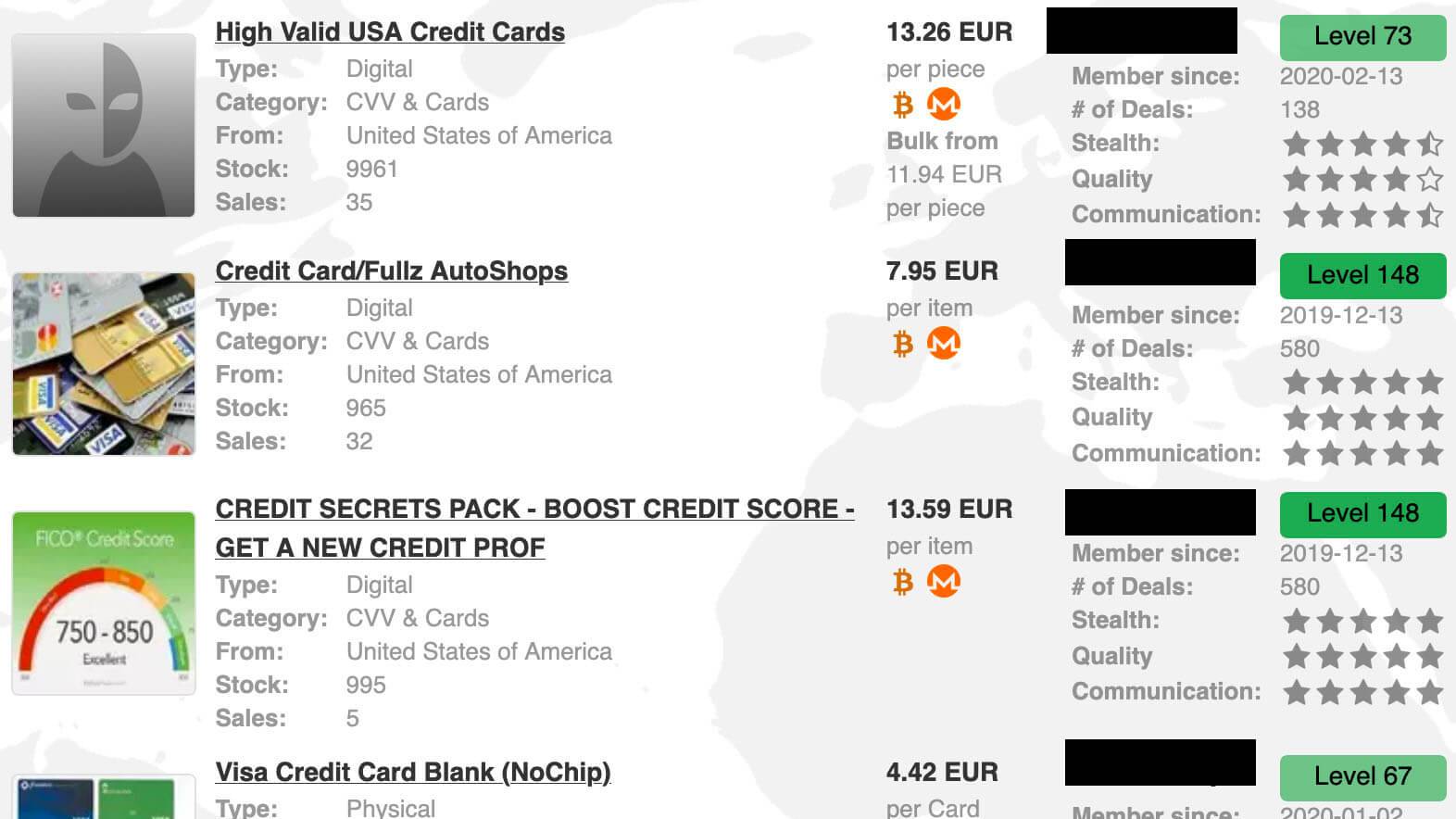Stolen credit card data is getting cheaper on the dark web
Dark Web Price Index 2022 shows market growth and product price plummet

Sign up to receive The Snapshot, a free special dispatch from Laptop Mag, in your inbox.
You are now subscribed
Your newsletter sign-up was successful
The dark web market is growing, with retailers selling stolen credit card data, cryptocurrency accounts, hacked Gmail and Twitter accounts, and purchasable malware for significantly cheaper prices over the past year.
As researched in the Dark Web Price Index 2022, cybersecurity analysts at Privacy Affairs discovered the dark web data market grew larger in total volume and product variety, with more than 9,000 active vendors selling everything from fake IDs and credit cards from February 2021 to January 2022. What's more, there were reportedly several thousands of transactions.
- Best antivirus apps in 2022
- What is Tor and how it can help you be anonymous online
- Best VPN deals in 2022
Compared to the previous year's report, supply has grown and prices have dropped. Malicious customers now have access to more hacked crypto accounts including verified Xcoins, bitit.io and Bit2me accounts, along with web services such as Uber.
According to cybersecurity specialist Patricia Ruffio, the dark web market's growth is due to notable changes in operations, including a new market leader and mimicking conventional marketing and retail operations methods.
"These days, Dark Web sites compete on the quality of their security and customer service," Ruffio states. "So, it’s no surprise that they now use traditional marketing tactics, too. Discounts (Buy 2 cloned credit cards, get one free), coupons, and product reviews are becoming common sights on the most competitive sites."
There has reportedly been a shift in market leaders, too. the most active site, White House Market, closed in October 2021. This led to other sites filling the gap, including other market sites including ToRReZ and a "reconstituted" AlphaBay. Plus, the dark web has apparently become more secure, using "more sophisticated" security measures. "Last year, Monero cryptocurrency replaced Bitcoin as payment, and pretty good privacy (PGP) encryption methods ruled the day. These security tools still reign supreme," Ruffio claims.
As for the drop in prices, everything from cloned credit cards and data, which saw around 4.5 million credit cards go up for sale in December, to hacked online service accounts, including one-year Netflix subscriptions, are now cheaper.
Here are a few notable products and their price changes on the dark web:
- Credit card details, account balance up to $5,000 — was $240 now $120
- Stolen online banking logins, minimum $2,000 on account — was $120 now $65
- PayPal transfer from stolen account, $1,000 – $3,000 balances — was $340 now $45
- Cash App verified account — was $1,000 now $800
- Kraken verified account — $810 now $250
- Coinbase verified account — was $619 now $120
- Netflix account, 1-year subscription — was $44 now $25
- New York driver’s license — was $80 now $70
- Maltese passport — was $6,500 now $3,800
- Europe fresh, high-quality per 1,000 installs (malware) — was $2,500 now $1,800
- USA high-quality, per 1,000 installs (malware) — was $1,900 now $1,700
- Unprotected website, 10-50k requests per second, 1 month (DDoS attack) — was $1,000 now $850
While it's unnerving to see the amount of stolen, hacked, or bogus data and documents being sold on the dark web, there are plenty of ways to keep yourself secure while online. Plus. as the report points out, law enforcement security specialists have become more skillful, too. You can opt to use one of the best antivirus apps, along with one of the best password managers and set up 2FA.
The annual Dark Web Price Index uses data collection methods including scanning dark web marketplaces, forums, and websites. You can check out other products and prices in Privacy Affairs' report.
Sign up to receive The Snapshot, a free special dispatch from Laptop Mag, in your inbox.

Darragh Murphy is fascinated by all things bizarre, which usually leads to assorted coverage varying from washing machines designed for AirPods to the mischievous world of cyberattacks. Whether it's connecting Scar from The Lion King to two-factor authentication or turning his love for gadgets into a fabricated rap battle from 8 Mile, he believes there’s always a quirky spin to be made. With a Master’s degree in Magazine Journalism from The University of Sheffield, along with short stints at Kerrang! and Exposed Magazine, Darragh started his career writing about the tech industry at Time Out Dubai and ShortList Dubai, covering everything from the latest iPhone models and Huawei laptops to massive Esports events in the Middle East. Now, he can be found proudly diving into gaming, gadgets, and letting readers know the joys of docking stations for Laptop Mag.

